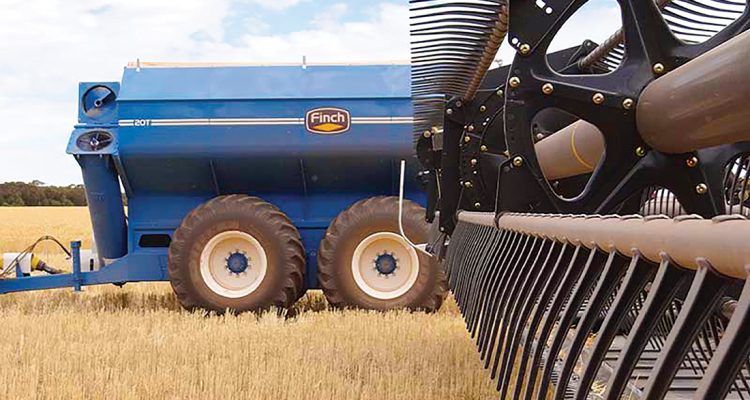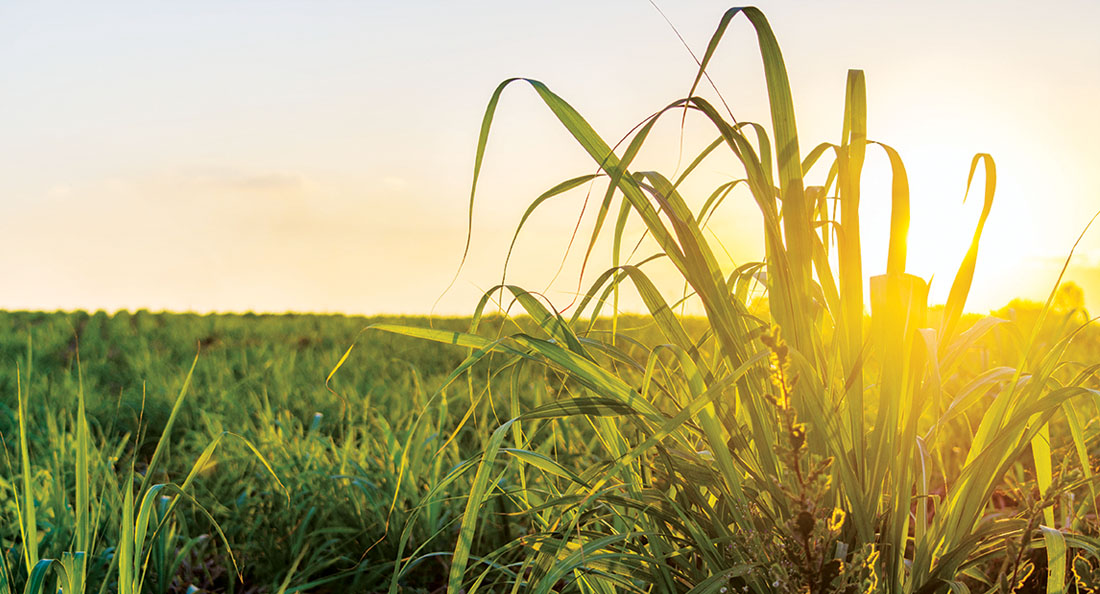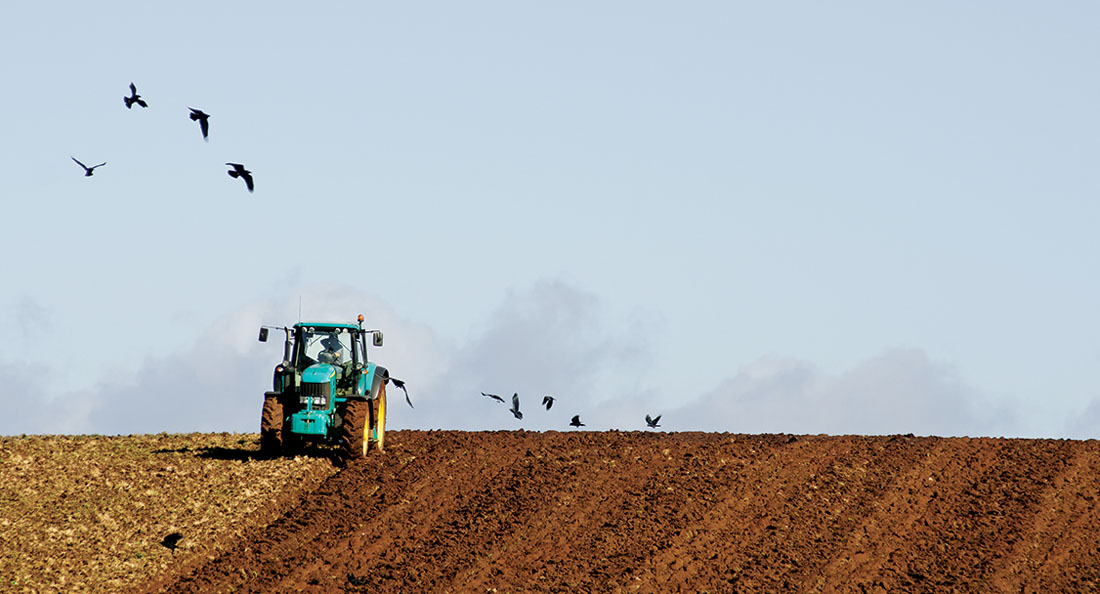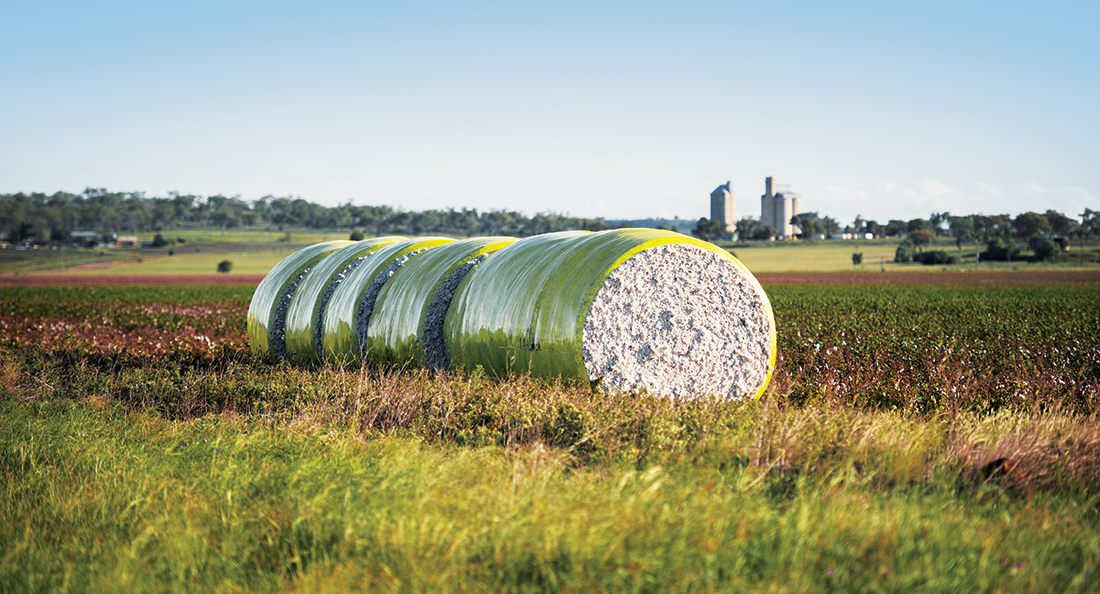Despite ongoing irregularity in climate conditions for growing and harvesting crops in Australia – including a surge of rainfall and flooding off the back of an extended drought – the Australian grain industry has experienced some of the most favourable seasons on record in recent years, according to the Department of Agriculture, Water, and the Environment.1
Centre stage to this uptick in production is the South Queensland city of Toowoomba – an inland metropolis positioned on the slopes of the Great Dividing Range – rich in fertile farming land, which accounts for the majority of its land use. Toowoomba ranks as one of the largest agricultural producers in Australia, driving the economy nation-wide. In 2019-2020, Toowoomba’s agricultural industry contributed $490 million gross revenue, approximately $3.9 million of which was generated from grain crops– supplied both domestically and exported around the globe.2
During peak grain harvesting season, CBC Toowoomba is always bustling with requests from local equipment manufacturers in the surrounding regions as they prepare harvesting equipment for farmers to cultivate crops, says Warren Beale – OEM Manager for CBC Toowoomba and the South East Queensland district.
Warren has been working in the agricultural sector for more than 40 years, bringing a wealth of knowledge and experience to the table. His fine-tuned expertise is what led local grain handling equipment manufacturers Finch Engineering to seek his consult on bearing application solutions for their machines.
From humble beginnings, Des Finch started the family-owned and operated welding and fabrication business in 1983. The business has since become known as ‘the grain handling experts’ in Australia due to their innovative grain handling equipment designs, which have only continued to evolve over the years.
Des handed the reins over to his son Leroy as Operations Manager in 2007, at the same time as Finch Engineering implemented a minted design for their range of Chaser Bins and Field bins sporting sleek curvature and stronger construction materials.
Leroy began investing more into the research and development of new designs effectively taking the business to the next level over the following decade. The company then proceeded to expand their range of product offerings to include auger, feeders, and in-field grain conveyors.
When Leroy approached Warren at CBC Toowoomba, he was looking for a new engineered bearing solution that could stand up to the harsh conditions of grain harvesting and handling in the field.
“When it comes to grain harvesting, bearings must work under arduous conditions for long hours, sometimes 24 hours a day. When “heading” is under way, the air is full of fine dust from the heads and stalks, clumps of dirt or mud from the field, as well as high-heat conditions,” says Warren. “The biggest problem for bearings during this time, is preventing the ingress of these contaminants through the bearing’s seals. Once the contaminants enter, they combine with the bearing grease and virtually turn it into a grinding paste which can cause overheating and raceway damage leading to a premature failure of the bearing.”
During harvest, any downtime in the field means loss of product and profits. Farmers must have their crops harvested as quickly as possible as there can sometimes be a limited window of opportunity to complete the job.
Weather plays a huge part of the growing season, especially during harvest time, where rain or abnormal weather conditions can be the enemy. Prolonged rain or storms can prevent the equipment getting out into the fields and delaying the harvest, and the crop can be ruined by prolonged moisture or hail damage. Therefore, bearings have to be reliable and withstand the harsh environment and workload to ensure a speedy and successful harvest, according to Warren.
“As a result, these guys are running their harvesters around the clock 24/7 to get these crops off their farms, so the last thing they want is a bearing failure, particularly if they’re working at midnight” he expounds.
“It is costly having the machine sitting idle whilst it is repaired in the field, if you happen to have the spare. Even worse, having to sit idle for hours waiting for a bearing to arrive next morning from town if you don’t.”
With the understanding that Finch Engineering take the utmost pride in the grain harvesting equipment they manufacture, Warren recommended the NTN Triple Lip sealed bearings as an upgrade to their existing bearing designs.
Enter Takao (Jerry) Maki, Director of NTN-CBC’s joint business venture, responsible for supporting the sales and marketing, business development, and engineering support for NTN products in Australia.
“The triple lip sealed bearings are a range of high-performance specialty bearings that we carry through our NTN-CBC branch network that cater to the agricultural sector,” says Jerry.
“The construction of the bearing allows it to withstand high heat and dry conditions found in some areas of Australia. In addition to this, the triple lip seal design stops dust and water from entering the bearing housings which prevents unnecessary downtime, maintenance, and costs for farmers.”
When it comes to bearings for harvesting equipment, Jerry says performance is paramount.
“The goal for our customer – in this case Finch Engineering – is to offer high performance grain harvesting equipment that has an extended life for the demands of peak harvest season.”
“And our goal as a larger organisation through Motion Australia is to maintain the high standard of quality that customers have come to expect from the NTN-CBC joint venture over the years.”
Since Warren and his team at CBC Toowoomba had stock of the NTN triple lip sealed bearings shipped to the Finch Engineering site, Leroy has been pleased with the results. Their performance has been exceptional and dramatically reduced bearing failures, therefore reducing costly call-outs for Finch Engineering.
Warren maintains a longstanding relationship with the Finch family and continues to visit their site at every opportunity. Prior to the start of each season, Warren and Leroy sit together to take stock and plan the continuity of supply for another full-on season.
“I’ve been in this line of work for a long time and people always ask me about how I have had the same customers for 20 or 30 years,” concludes Warren.
“The answer I give them is simple: I treat my customers the way I would want to be treated myself. I want a reliable service provider that will come to where I am, take the onus of a problem off me, provide me a complete solution and let me walk away the same day with peace of mind. That is the service we provide at CBC Toowoomba.”
References:
- Australian Government Department of Agriculture, Water, and the Environment Agricultural forecasts and outlook March quarter 2021 https://www.awu.net.au/wp-content/uploads/2021/06/00_AgCommodities202103_v1.0.0.pdf
- Australian Bureau of Statistics, Value of Agricultural Commodities Produced, Australia https://www.abs.gov.au/statistics/industry/agriculture/value-agricultural-commodities-produced-australia/latest-release




